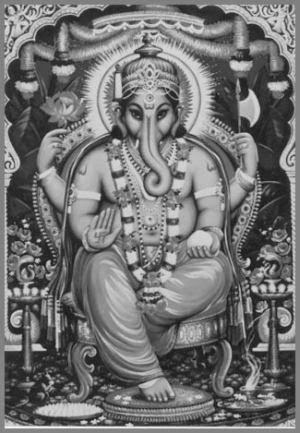All of our experience, including dreams, arises from ignorance. This is a rather startling statement to make in the West, so first let us understand what is meant by ignorance. The Tibetan tradition distinguishes between two kinds of ignorance: innate ignorance and cultural ignorance. Innate ignorance is the basis of samsara, and the defining characteristic of ordinary beings. It is ignorance of our true nature and the true nature of the world, and it results in entanglement with the delusions of the dualistic mind.
Dualism reifies polarities and dichotomies. It divides the seamless unity of experience into this and that, right and wrong, you and me. Based on these conceptual divisions, we develop preferences that manifest as grasping and aversion, the habitual responses that make up most of what we identify as ourselves. We want this, not that; believe in this, not that; respect this and disdain that. We want pleasure, comfort, wealth, and fame, and try to escape from pain, poverty, shame, and discomfort. We want these things for ourselves and those we love, and do not care about others. We want an experience different from the one we are having, or we want to hold on to an experience and avoid the inevitable changes that will lead to its cessation.
There is a second kind of ignorance that is culturally conditioned. It comes about as desires and aversions become institutionalized in a culture and codified into value systems. For example, in India, Hindus believe that it is wrong to eat cows but proper to eat pigs. Moslems believe that it is appropriate to eat beef but they are prohibited from eating pork. Tibetans eat both. Who is right? The Hindu thinks the Hindus are right, the Moslem thinks the Moslems are right, and the Tibetan thinks the Tibetans are right. The differing beliefs arise from the biases and beliefs that are part of the culture - not from fundamental wisdom.
Another example can be found in the internal conflicts of philosophy. There are many philosophical systems that are defined by their disagreement with one another on fine points. Even though the systems themselves are developed with the intention to lead beings to wisdom, they produce ignorance in that their followers cling to a dualistic understanding of reality. This is unavoidable in any conceptual system because the conceptual mind itself is a manifestation of ignorance.
Cultural ignorance is developed and preserved in traditions. It pervades every custom, opinion, set of values, and body of knowledge. Both individuals and cultures accept these preferences as so fundamental that they are taken to be common sense or divine law. We grow up attaching ourselves to various beliefs, to a political party, a medical system, a religion, an opinion about how things should be. We pass through elementary school, high school, and maybe college, and in one sense every diploma is an award for developing a more sophisticated ignorance. Education reinforces the habit of seeing the world through a certain lens. We can become an expert in an erroneous view, become very precise in our understanding, and relate to other experts. This can be the case also in philosophy, in which one learns detailed intellectual systems and develops the mind intoa sharp instrument of inquiry. But until innate ignorance is penetrated, one is merely developing an acquired bias, not fundamental wisdom.
We become attached to even the smallest things: a particular brand of soap or our hair being cut in a certain fashion. On a grand scale, we develop religions, political systems, philosophies, psychologies, and sciences. But no one is born with the belief that it is wrong to eat beef or pork or that one philosophical system is right and the other in error or that this religion is true and that religion is false. These must be learned. The allegiance to particular values is the result of cultural ignorance, but the propensity to accept limited views originates in the dualism that is the manifestation of innate ignorance.
This is not bad. It is just what is. Our attachments can lead to war but they also manifest as helpful technologies and different arts that are of great benefit to the world. As long as we are unenlightened we participate in dualism, and that is all right. In Tibetan there is a saying, "When in the body of a donkey, enjoy the taste of grass." In other words, we should appreciate and enjoy this life because it is meaningful and valuable in itself, and because it is the life we are living.
If we are not careful, the teachings can be used to support our ignorance. One can say that it is bad for someone to get an advanced degree, or wrong to have dietary restrictions, but this is not the point at all. Or one might say that ignorance is bad or normal life is only samsaric stupidity. But ignorance is simply an obscuration of consciousness. Being attached to it or repelled by it is just the same old game of dualism, played out in the realm of ignorance. We can see how pervasive it is. Even the teachings must work with dualism - by encouraging attachment to virtue, for example, and aversion to non-virtue paradoxically using the dualism of ignorance to overcome ignorance. How subtle our understanding must become and how easily we can get lost! This is why practice is necessary, in order to have direct experience rather than just developing another conceptual system to elaborate and defend. When things are seen from a higher perspective they tend to level out. From the perspective of non-dual wisdom there is no important and unimportant.
Tenzin Wangyal Rinpoche

































